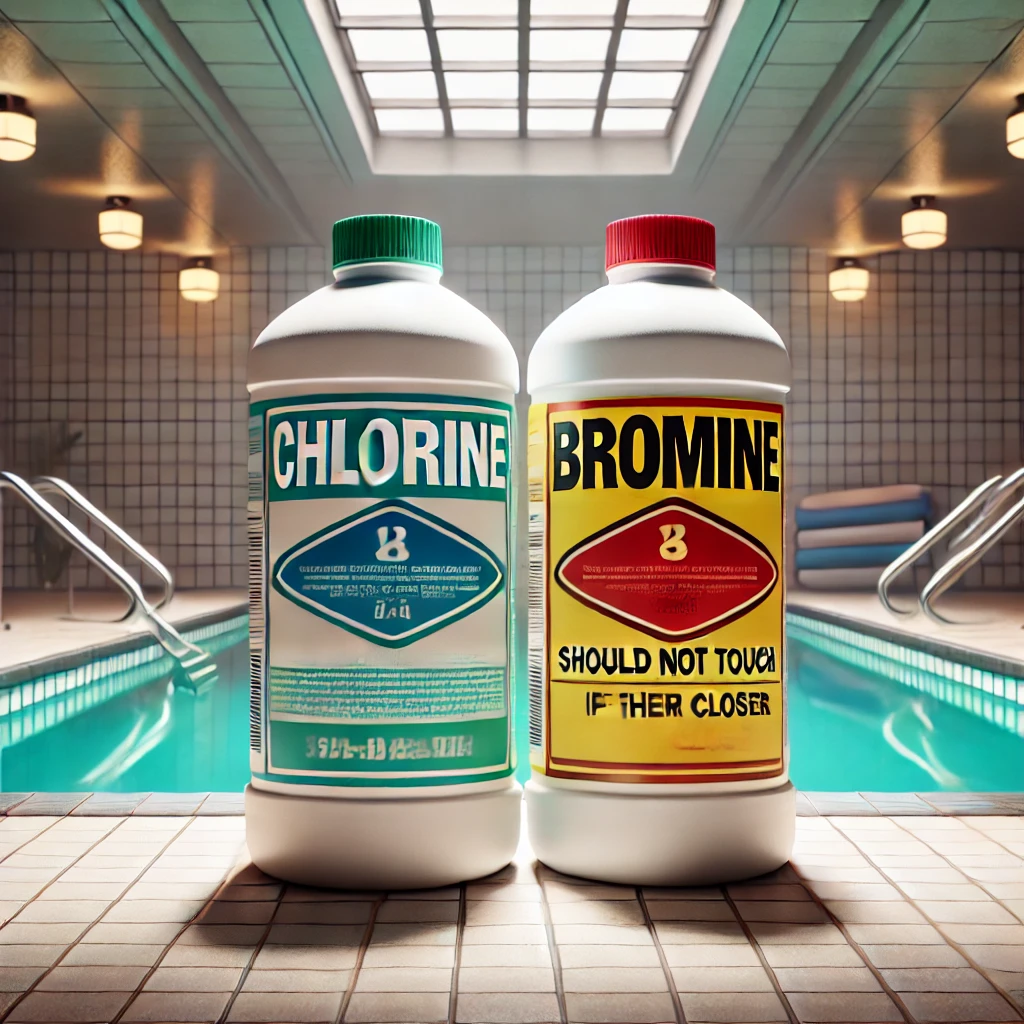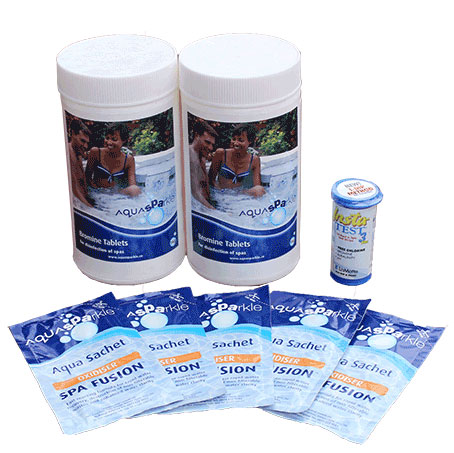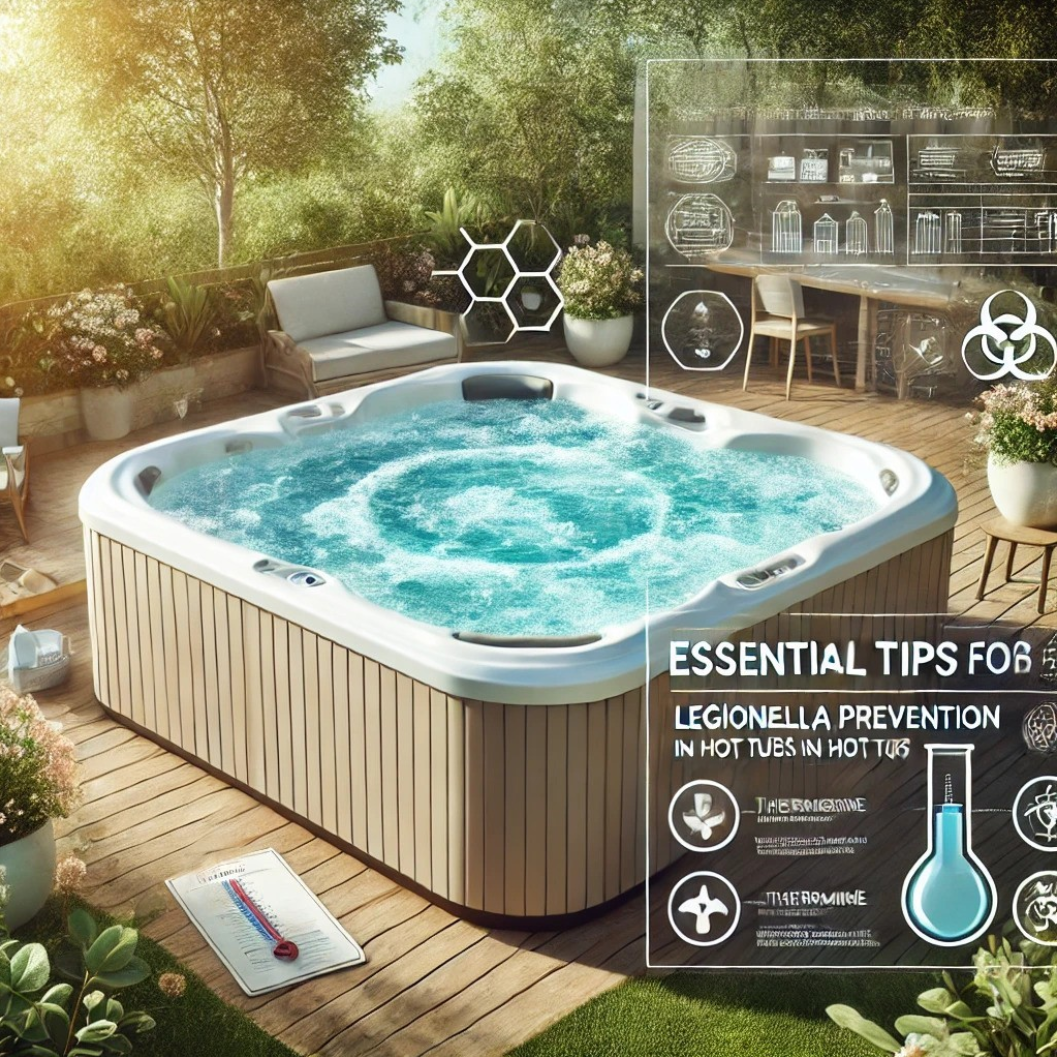Chlorine vs Bromine: Which is Best for Your Hot Tub?
Choosing the right sanitizer for your hot tub is crucial to maintaining water quality, ensuring the safety of bathers, and extending the life of your equipment. The two most popular choices are chlorine and bromine, but they have key differences in terms of performance, maintenance, and cost. Let’s dive into the details to help you make the best decision for your hot tub.
1. Effectiveness in Sanitisation
Both chlorine and bromine are effective sanitizers, but they differ in how they work:
- Chlorine:
- Chlorine is widely known for its ability to quickly kill bacteria and viruses by oxidising contaminants. It works fast to sanitise the water, making it ideal for users who prefer more frequent maintenance.
- However, chlorine forms chloramines (a byproduct of chlorine interacting with contaminants) which can produce a strong smell and reduce its effectiveness over time. Chloramines are responsible for the “pool smell” often associated with chlorine(outdoorcareguide.com)(Pool Pro UK).
- Chlorine’s effectiveness decreases significantly in high temperatures, making it slightly less suited for hot tubs, which typically run hotter than pools.
- Bromine:
- Bromine is also an excellent sanitizer, but it acts differently by ionising contaminants instead of oxidising them. This means it stays effective longer than chlorine and continues to work after neutralising contaminants.
- Unlike chlorine, bromine forms bromamines, which do not have a strong odour and maintain sanitation capabilities without needing to be “shocked” as frequently(totallyhottubs.com)(hottubsrock).
- Bromine holds up better in higher temperatures, making it more efficient for hot tubs, where the water is typically kept between 37°C and 40°C (98-104°F)(Pool Pro UK).
2. pH Balance and Water Quality
Maintaining the right pH balance in your hot tub is essential for keeping the water comfortable for users and preventing damage to equipment:
- Chlorine:
- Chlorine is typically more acidic, which means it can cause the pH levels in your hot tub to fluctuate and requires frequent adjustment. The ideal pH range for chlorine to work effectively is 7.2 to 7.6, so additional pH balancing chemicals may be needed(WhatSpa?).
- Because chlorine dissipates quickly, it needs more frequent monitoring to ensure safe levels are maintained.
- Bromine:
- Bromine is more stable in hot water and less likely to cause large fluctuations in pH. As a result, bromine is easier to maintain, as it requires less frequent testing and balancing(totallyhottubs.com).
- Bromine also holds its sanitizing power for a longer time, which can result in a more consistent level of cleanliness without needing constant pH adjustments.
3. Cost and Availability
When it comes to cost, the two chemicals differ, both in initial price and long-term value:
- Chlorine:
- Chlorine is typically cheaper than bromine, both in tablet and granule form. It’s widely available, making it a convenient and affordable option for hot tub owners on a budget(hottubsrock).
- However, because chlorine dissipates faster, you may need to use more of it, especially in a hot tub that is frequently used, making it slightly less economical in the long run(Pool Pro UK).
- Bromine:
- Bromine is generally more expensive upfront than chlorine, but because it lasts longer and needs less frequent replacement, it may offer better long-term value, particularly for hot tubs in constant use(WhatSpa?).
- The higher initial cost is balanced by reduced maintenance frequency, meaning you may spend less time (and money) topping up chemicals.
4. Maintenance and Frequency of Use
Your maintenance routine can be significantly impacted by your choice of sanitizer:
- Chlorine:
- Chlorine needs to be monitored daily or at least every few days to ensure it’s at safe levels. Hot tubs with chlorine may need to be shocked more frequently to break down chloramines and restore effectiveness(WhatSpa?).
- If you prefer a “hands-on” approach to hot tub maintenance, chlorine can give you more direct control over sanitisation(Pool Pro UK).
- Bromine:
- Bromine requires less frequent monitoring and can remain active in the water longer than chlorine. For holiday let owners or those who don’t use their hot tub every day, bromine offers the convenience of lower maintenance(totallyhottubs.com)(hottubsrock).
- While bromine does not require frequent shocking, it is still a good idea to shock the tub occasionally to maintain optimal cleanliness and water clarity(outdoorcareguide.com).
5. Sensitivity and Skin Reactions
People’s sensitivity to hot tub chemicals is an important factor in choosing between chlorine and bromine:
- Chlorine:
- Chlorine can sometimes cause skin and eye irritation, especially if the levels become too high or if it forms chloramines. It is also more likely to produce a strong, unpleasant odour(hottubsrock).
- Bromine:
- Bromine is generally considered to be less irritating to the skin and eyes. Additionally, bromamines do not produce a strong smell like chloramines, making the overall experience more pleasant for bathers(Pool Pro UK)(totallyhottubs.com).
Conclusion
When deciding between chlorine and bromine for your hot tub, the right choice will depend on your specific needs and preferences. If you are looking for a cost-effective solution and don’t mind regular maintenance, chlorine might be the best option. It works quickly but requires more frequent attention, especially in high-use hot tubs.
On the other hand, if you prefer a chemical that lasts longer, is easier to maintain, and is better suited for the high temperatures of hot tubs, bromine may be the superior choice. Though more expensive, bromine offers long-term value through its stability and reduced maintenance requirements.
Ultimately, either chemical will keep your hot tub clean and safe, but choosing the right one comes down to balancing your priorities between cost, convenience, and user experience.
Internal and External Links:
For more information on maintaining water quality, read our Complete Guide to Hot Tub Maintenance or explore the Top Sanitising Methods for Hot Tubs.
You can also refer to WhatSpa? Hot Tub Sanitising Tips for more insights on chlorine vs. bromine in hot tub maintenance(


